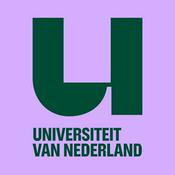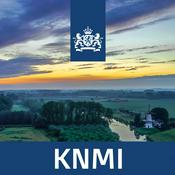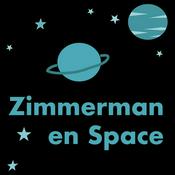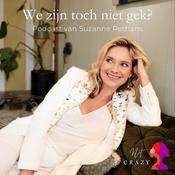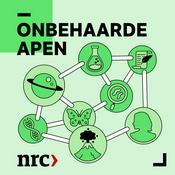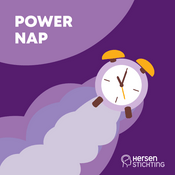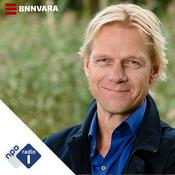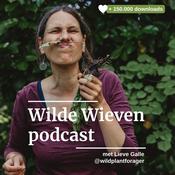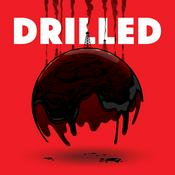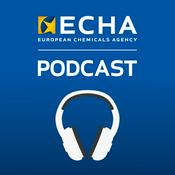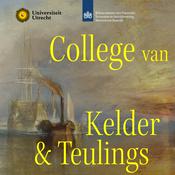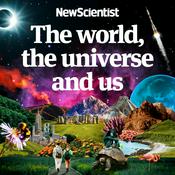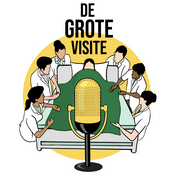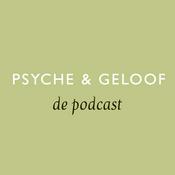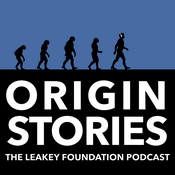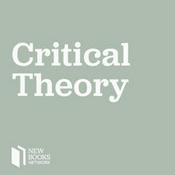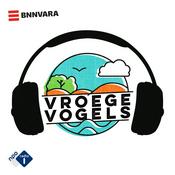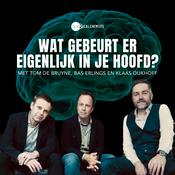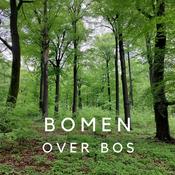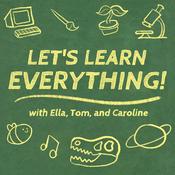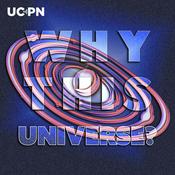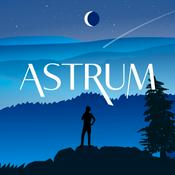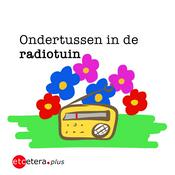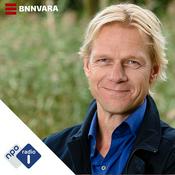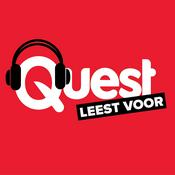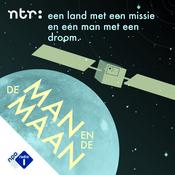Adverse Reactions
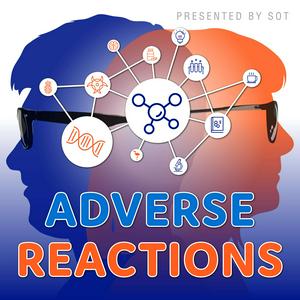
32 afleveringen

Testing the Waters
13-1-2025 | 26 Min.
From studying polluted waters off the coast of California to explaining the feasibility of a fungal-based zombie outbreak at San Diego Comic Con, Kari Sant, PhD, Michigan State University, discusses her passion projects with co-hosts Anne Chappelle, PhD, DABT, and David Faulkner, PhD, DABT. Dr. Sant also reveals what it is like to start a new lab when you change institutions.About the GuestKari Sant, PhD, is an Associate Professor of pharmacology and toxicology in the College of Veterinary Medicine at Michigan State University. She received her Bachelor of Science in biology and environmental science, her Master of Public Health in environmental health, and her PhD in toxicology from the University of Michigan. She formerly served as an Assistant and Associate Professor in San Diego State University's School of Public Health and served on the board of directors for the Boz Institute (San Diego, California). Dr. Sant's research program investigates environmental toxicology using a One Health framework. She uses the zebrafish model to study developmental toxicology, with an emphasis on pancreatic organogenesis and the developmental origins of diabetes. She leads and co-leads a number of studies investigating the toxicity of water contaminants in communities and how exposures may impact embryonic and child development.Send SOT thoughts on the episodes, ideas for future topics, and more.

Boom! When Evolutionary Biology and Toxicology Collide
06-1-2025 | 28 Min.
Noah Whiteman, PhD, a professor at UC Berkeley, shares his unique perspective on toxins, stemming from his background in entomology and plant-insect interactions. He explores how toxins impact the ecology and evolution of various organisms, from insects to humans, with co-hosts Anne Chappelle, PhD, and David Faulkner, PhD.About the GuestNoah Whiteman, PhD, is Professor of Genetics, Genomics, Evolution, and Development in the Department of Molecular & Cell Biology and the Department of Integrative Biology at University of California (UC) Berkeley. His laboratory focuses on understanding why and how organisms deploy toxins as weapons that they use in offense and defense. Dr. Whiteman is Co-director of the NIH T32 Genetic Dissection of Cells and Organisms Training Program that provides training to 16 PhD students in genetics.Dr. Whiteman conducted his dissertation research in the Galapagos Islands on co-evolution between birds and their parasites. He then completed an NIH postdoctoral fellowship at Harvard where he began to use plants as model hosts that were attacked by diverse parasites. At UC Berkeley, his laboratory focuses on how plants have evolved to produce diverse toxins as defensive shields and how insects have evolved in response to resist and even sequester them. He uses genomics and genome editing as a tool to ascertain which genetic changes are responsible for these co-evolved traits.Send SOT thoughts on the episodes, ideas for future topics, and more.

Cardiovascular Risks from Low-Level Metal Mixtures
30-12-2024 | 27 Min.
Sometimes negative results can be just as interesting as positive ones. Nivetha Subramaniam, a student at McGill University, discusses her research regarding the potential cardiovascular risks from exposure to mixtures of arsenic and cadmium with co-hosts Anne Chappelle, PhD, and David Faulkner, PhD.About the GuestNivetha Kamalavannan Subramaniam is a PhD student at McGill University in Canada. She is the recipient of the McGill Dr. Morris Karmazyn and Dr. Margaret P. Moffat Fellowship in Cardiovascular Research. The title of her PhD thesis project is "The Pro-atherogenic Effects of Arsenic and Cadmium Mixtures."Ms. Subramaniam serves as the Graduate Student Representative for the SOT Metals Specialty Section, and in 2023, she received the second place prize from the SOT Metals Specialty Section Student Research Award Fund.Send SOT thoughts on the episodes, ideas for future topics, and more.

Tox in Your Backyard
23-12-2024 | 27 Min.
From Superfund remediation sites near neighborhoods to wartime combat zones, toxicology is everywhere, which is why many states employ toxicologists on their public health teams. Co-hosts Anne Chappelle, PhD, and David Faulkner, PhD, speak with Julie Miller, PhD, Public Health Toxicologist for the Commonwealth of Pennsylvania, about the impacts of stress and environmental exposures on public health.About the GuestJulie Miller, PhD, Public Health Toxicologist, Pennsylvania Department of Public Health, is a board-certified toxicologist with primary training and expertise in analytical chemistry, in vitro and alternative methods, toxicology study design, data analysis and interpretation, and mixtures toxicology. Dr. Miller has significant experience supporting regulatory submissions of consumer products for toxicological, analytical chemistry, and human health risk assessment and has demonstrated expertise in review and derivation of occupational exposure limits (OELs) and permissible exposure limits (PELs) for various industries, exposure assessment for consumer products, and analytical method development and analysis for quantification of tire particles in environmental matrices. Dr. Miller has also managed occupational health and safety projects related to employee stress, sleep deprivation, and traumatic injury in the workplace. Dr. Miller received her PhD from the Department of Chemistry at West Virginia University, where her dissertation utilized early cellular changes to explore biological responses to individual chemical and mixture exposures. Dr. Miller received postdoctoral training at the US Centers for Disease Control and Prevention National Institute for Occupational Safety and Health (CDC/NIOSH), where she evaluated neurobiochemical alterations in vivo after exposure to a mixture of stress and occupational and/or environmental chemical insult to further elucidate the role stress plays in physiological response to external stimuli. Dr. Miller has over 50 published manuscripts, abstracts, and book chapters related to in vitro and in vivo toxicology. Send SOT thoughts on the episodes, ideas for future topics, and more.

Toxicology Is a Team Sport: The Science of Working Together
16-12-2024 | 26 Min.
Did you know that there are scientists who study teamwork? Co-hosts Anne Chappelle, PhD, and David Faulkner, PhD, DABT, speak with Stephen Fiore, PhD, Director, Cognitive Sciences Laboratory, about the art and science of working in teams and what you can do to improve teamwork in your lab, department, etc.About the GuestStephen M. Fiore, PhD, is Director, Cognitive Sciences Laboratory, and Professor with the University of Central Florida's Cognitive Sciences Program in the Department of Philosophy and School of Modeling, Simulation, and Training. He maintains a multidisciplinary research interest that incorporates aspects of the cognitive, social, organizational, and computational sciences in the investigation of learning and performance in individuals and teams. His primary area of research is the interdisciplinary study of complex collaborative cognition and the understanding of how humans interact socially and with technology.Dr. Fiore is Immediate Past President of the International Network for the Science of Team Science, and Past President for the Interdisciplinary Network for Group Research. In 2018, Dr. Fiore was nominated to DARPA's Information Sciences and Technology (ISAT) Study Group to help the Department of Defense examine future areas of technological development potentially influencing national security. He has been a visiting scholar for the study of shared and extended cognition at École Normale Supérieure de Lyon in Lyon, France (2010), and an invited visitor to the internationally renowned interdisciplinary Santa Fe Institute (2013). He was a member of the expert panel for the Organisation for Economic Co-operation and Development's 2015 Programme for International Student Assessment (PISA), which focused on collaborative problem-solving skills. He has contributed to working groups for the National Academies of Sciences in understanding and measuring "21st-Century Skills" and was a committee member of their "Science of Team Science" consensus study, as well as a member of the National Assessment of Educational Progress report on "Collaborative Problem Solving".Dr. Fiore has been awarded the University of Central Florida (UCF) prestigious Research Incentive Award four times to acknowledge his significant accomplishments, and he is recipient of UCF's Luminary Award (2019), as recognition for his work having a significant impact on the world, and UCF's Reach for the Stars Award (2014), as recognition for bringing international prominence to the university. As Principal Investigator and Co-Principal Investigator, Dr. Fiore has helped to secure and manage approximately $35 million in research funding. He is co-author of a book on “Accelerating Expertise” (2013) and is a co-editor of volumes on Shared Cognition (2012), Macrocognition in Teams (2008), Distributed Training (2007), and Team Cognition (2004). Dr. Fiore has also co-authored over 200 scholarly publications in the area of learning, memory, and problem solving in individuals and groups.Send SOT thoughts on the episodes, ideas for future topics, and more.
Meer Wetenschap podcasts
Trending Wetenschap -podcasts
Over Adverse Reactions
Luister naar Adverse Reactions, The Rest Is Science en vele andere podcasts van over de hele wereld met de radio.net-app

Ontvang de gratis radio.net app
- Zenders en podcasts om te bookmarken
- Streamen via Wi-Fi of Bluetooth
- Ondersteunt Carplay & Android Auto
- Veel andere app-functies
Ontvang de gratis radio.net app
- Zenders en podcasts om te bookmarken
- Streamen via Wi-Fi of Bluetooth
- Ondersteunt Carplay & Android Auto
- Veel andere app-functies


Adverse Reactions
download de app,
luisteren.

